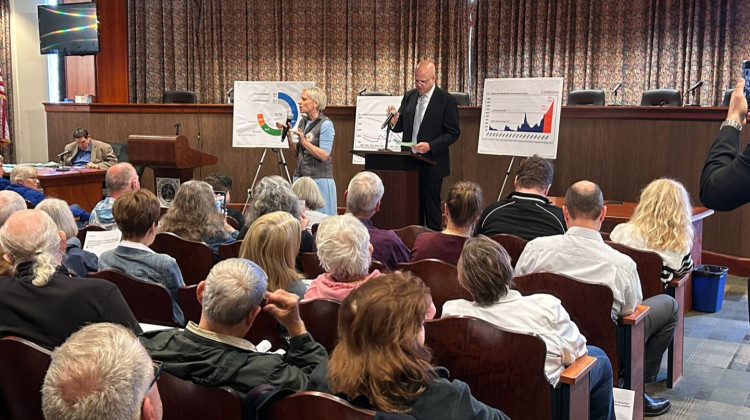As winter approaches, hog farmers are looking for ways to protect their herds against a fatal virus that thrives in cold weather.
About 80 farmers and animal health experts attended a Purdue University conference Tuesday seeking answers, and a hot topic there was two new vaccines that came on the market this year. But, they aren’t a cure-all solution.
The U.S. Department of Agriculture recently approved the two new vaccines to combat porcine epidemic diarrhea virus or PEDv.
Darren Miller is an associate veterinarian with Swine Health Associates. He warns those vaccines have had limited success — especially in herds that have never been exposed to the disease.
“I think it’s important for producers to realize that it’s an additional tool, you can’t use it as a crutch," Miller says. "You really have to continue your disinfection protocols, keeping that level of environmental exposure down to keep from infecting the baby pigs.”
Mark Legan owns a 3,000-head hog farm in Putnam County. He says he isn’t planning on vaccinating his herds. Instead, he’s taking other precautions such as requiring trucks coming into the facility to be thoroughly disinfected.
“We’ll keep doing the best we can and cross our fingers," Legan says. "There’s only so much you can do. Even some of the most biosecure farms this past year were infected."
PEDv has been found in dozens of hog farms in Indiana and has killed an estimated 8 million pigs nationally since last year — causing a spike in pork prices.
 DONATE
DONATE






 View More Articles
View More Articles

 Support WFYI. We can't do it without you.
Support WFYI. We can't do it without you.